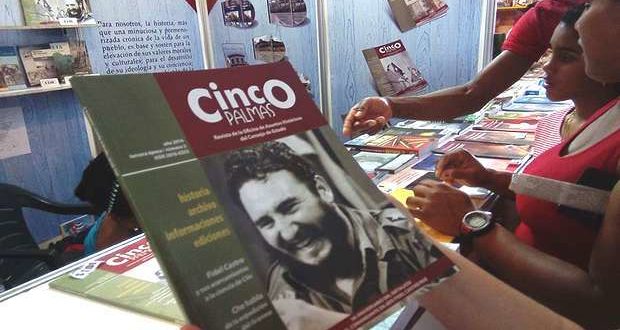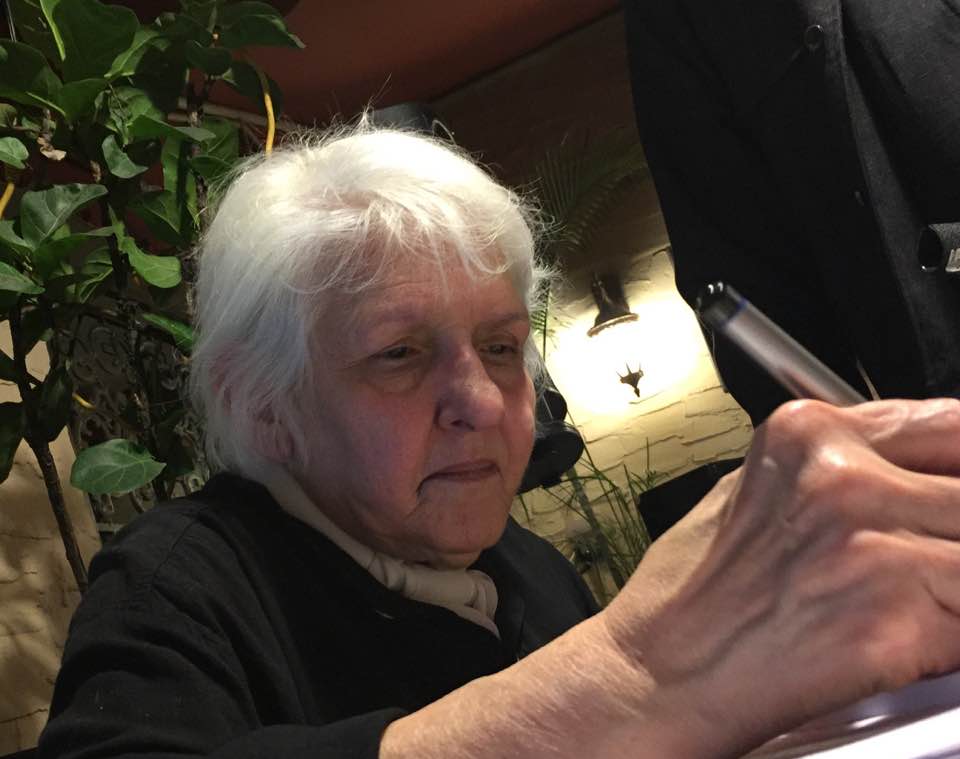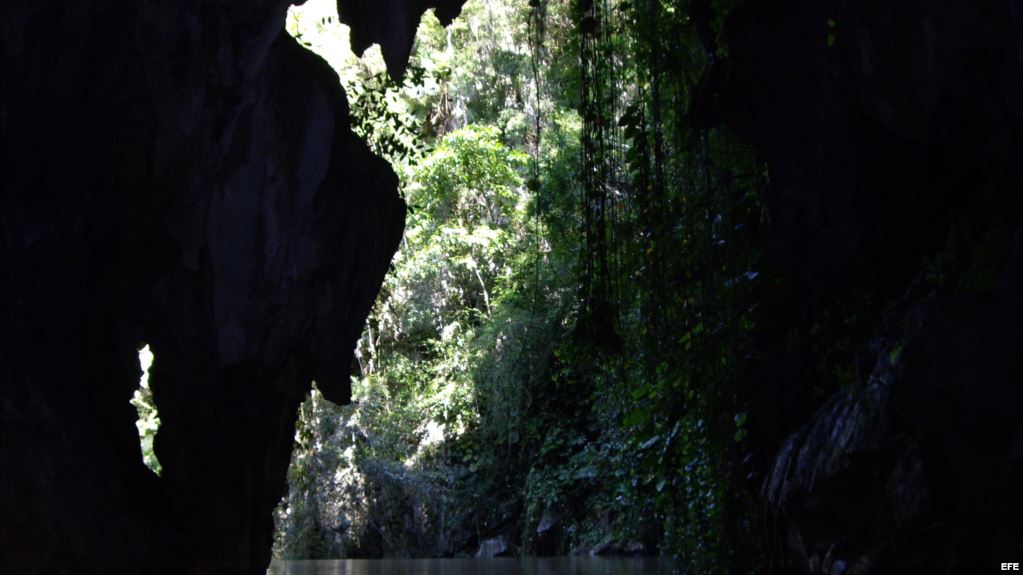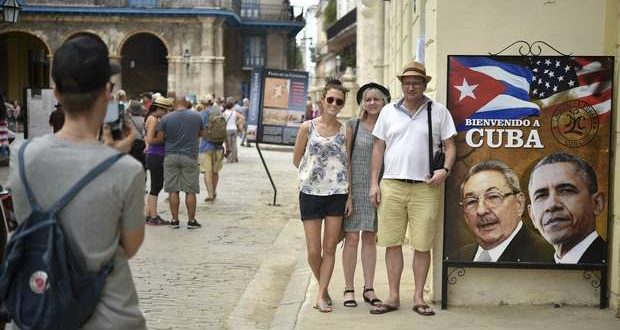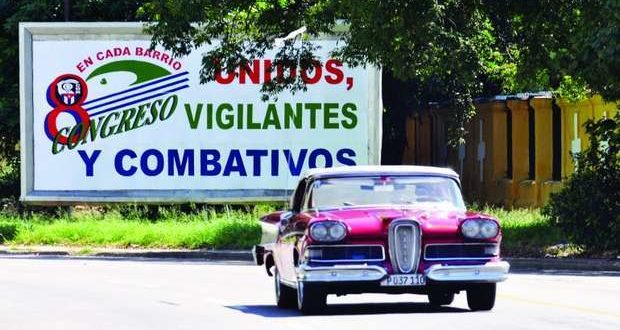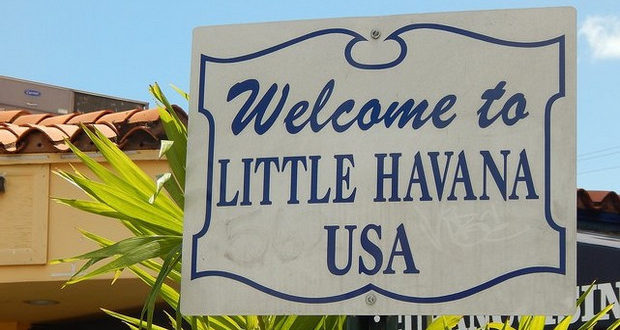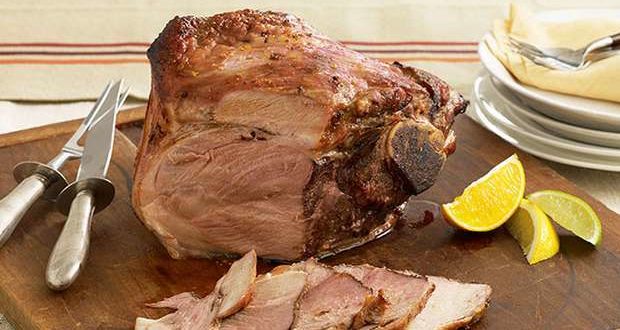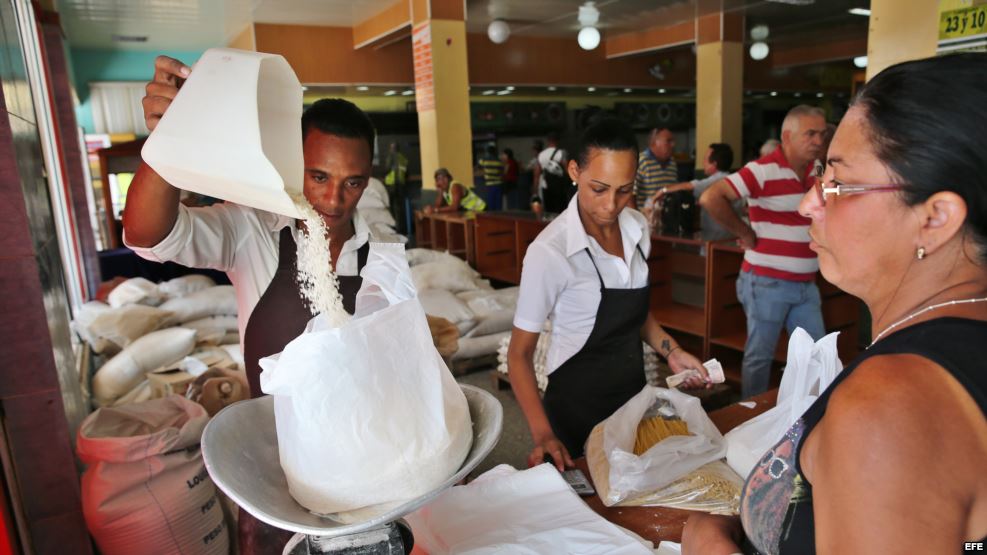
Iván García, 10 June 2017 — The heat is terrible. Not even a light breeze in the wide entry to Carmen Street, by Plaza Roja de la Vibora, thirty minutes from Havana centre.
Reinaldo, an old chap, depressed, seated on a wall facing the water tank of the building where he lives, waits for the water to flow. “On the Havana Channel news they said that we will have water from six in the morning on Wednesday May 31st, until six in the evening”, he says without taking his eyes off the tank.
All his neighbours passing by ask him the same question. “Rey, has the water come on yet?”. With a weary voice, the self-appointed water guard replies: “Not yet, but I’m sure it will in a minute”. continue reading
The neighbours don’t hide their ill-humour and vent their annoyance insulting the government’s performance. “These people (the government) are pricks. How long do us Cubans have to put up with having our lives screwed up?” A retired teacher considers that “if they had kept the water pipes maintained, there wouldn’t have been any leaks”.
The official press tries to be positive. As always. It talks about “the efforts of the Havana water workers who are working 24 hours a day to repair the leaks”.
And they blow a smoke screen. “After the repair work the water pressure across the city will be a lot better”, says a spokesman on the radio in a tenor voice. But the man in the street is sceptical.
“When the government takes something from us, that’s the cherry on the cake. They snatched a pound of rice from each of us to give to Vietnam during the war. The Vietnam war finished 42 years ago, and now the Vietnamese are sending rice to us. The government never gave us back the pound of rice. That’s how it always is, they take us by the hand and run off. I am absolutely sure that, because of the fuel shortage and the drought, they will extend it to a three day water cycle in the capital”, is the angry opinion of a man who tells us he has a friend in Havana Water.
The negative rumours fly about. Some worse than others But few of them are good news. Emilio, from Santiago, visiting Havana, tells us: “it’s worse for us in Santiago, my friend”. In the city centre it’s every eight days and on the outskirts every thirty or forty. All we’ve been able to do is learn to wash ourselves with half a bucket of water and walk around in dirty clothes, which get washed every two weeks.
Juan Manuel, a hydraulic engineer, explains that “the water problem in Havana is pretty complicated. Instead of new pipelines they have put in 748.6 km of old tubing. The company repairs one section, but then the water pressure damages a section which has not yet been repaired. On top of that there is the fact that their workmanship is not of the highest quality. And their old fashioned technology along with years of no maintenance complicate things further. It’s a complete waste of time.
A pipework and drainage specialist considers that “the government wants to improve the water quality and the pipe network. But they did no maintenance for decades. 60% of the water distributed through the capital leaks away. That figure has now fallen to 20%. It’s a complex task which needs millions of dollars and the government hasn’t got any money”.
In the last seven years, Kuwait and Saudi Arabia have between them donated about 50 million dollars. “But it’s not enough. Don’t forget that the problem of out of date water pipes and drainage is not only in Havana. It affects the whole country. It’s obviously the government’s fault. When things were going well, they didn’t provide the necessary resources. And now, with the economic crisis, the reduced quantity of oil coming from Venezuela, and the drought, have made it more difficult to sort out the problem”, said our specialist, and he adds:
“Ideally we need to completely change our water management strategy. Introduce renewable sustainable recycling methods for the water supply and for dirty water. Build a new aqueduct for sea water desalination and increase the existing capacity.
There are various water distributors in Havana. The main ones are Albear Aqueduct, opened in 1893, the Conductora Sur, and El Gato. But, because of the deterioration of various sections of pipework, there are frequent fractures.
The water supply varies from one part of the city to another. In some parts they get water every day, at specific times. In most other places, on alternate days. And in different districts on the outskirts you get a three or four days’ supply.
The deficit in the precious liquid leads the Habaneros to increase their water storage capacity by using tanks constructed without worrying about technical specifications or guaranteeing its drinking quality or ensuring they are protected against becoming breading zones for the Aedes Aegypti mosquito which spreads dengue and chikungunya.
“If you extend the water cycle in Havana, you increase the extent of stagnant water without adequate protection and increase the risk of insect-spread disease and get more rats. With less hygiene and reservoirs containing contaminated water you open the door to epidemics “, is the point made by an official of Hygiene and Epidemiology.
But the biggest worry for families like José’s, with his wife and three children, is having enough water to take a shower and run the toilet. In this heat, their mother has to wash with half a bucket of water and she cant flush the toilet”, José tell us.
Some places have it worse. Regla, a pensioner who lives in a run-down room in a plot in Old Havana, the same as 170 thousand families in the capital, hasn’t received drinkable water in her home for years. “I pay 100 pesos to a water seller for him to fill two 55 gallon tanks which I have in my room. That lasts me a week usually. But with the water crisis, the man put up the price to 160 pesos. And I only get a coupon book for 200 pesos”.
The price charged by the water tanker trucks has also shot up. “When there are no supply problems, a tanker charges 30 CUC. Now you have to pay 40 or 50 CUC. But you don’t get any, even for ready money,” is what the proprietor of a cafe selling local specialities tells us.
Food business owners have had to shut at certain hours because of the lack of water. “I hope they sort it out quickly, because sales have gone up 200%, as many people prefer to eat in the street so as to save water in their houses” says the self employed man.
According to the government media, water distribution will be back to normal on Thursday June 1st. But lots of Habaneros don’t believe it. ” They have lied to us so often that when they tell the truth, you always doubt it”, says Reinaldo, the guy living in La Vibora, who, from early morning on waits by the tank for the water to flow.
On June 1st precisely, the government announced an extraordinary session of the National Assembly of People’s Power, Cuba’s parliament. The Cuban in the street suspects that there will be more economic stringencies and they will be obliged to tighten their belts. Again.
Translated by GH




